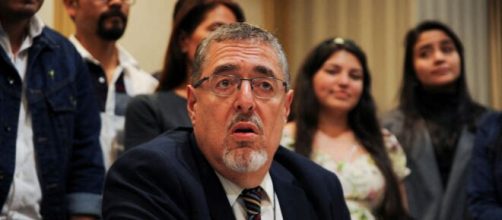Guatemala has concluded both rounds of its 2023 election for its next president. The current president, Alejandro Giammattei of the conservative Vamos political party, was not running for re-election.
In Guatemala, if no candidate receives a majority of votes in one round of voting, a second is necessary. In that case, only the candidates who receive the top two most votes advance to the next round. In this case, one of those advancing did so in what was seen as an upset. And he is now poised to become the country's president in early 2024.
Arévalo wins the Presidency
Bernardo Arévalo has won the 2023 Guatemalan Presidential election. The result has been referred to as a landslide. Arévalo finished more than 20 points ahead of his competitor, Sandra Torres. It marks the third time that Torres has run unsuccessfully to become president of Guatemala. She was the nominee of the populist National Unity of Hope Party.
Arévalo, meanwhile, was running under the banner of the centre-left party Semilla. He ran his campaign on a platform of anti-corruption. Outgoing President Giammattei and U.S. President Joe Biden reportedly congratulated him on his win.
His reaching the second round provided something of a shock for many. Of the nine major candidates, Arévalo was thought to be in the mid-to-rear of the pack.
It had long been anticipated that Torres would move forward. Former National Congress President Edmond Mulet and former Congresswoman Zury Rios were considered the other main contenders. Another, businessman Carlos Pineda, had polled high before his candidacy was deemed ineligible.
But when the votes were tallied, Arévalo was in second place. And in the next round, voters of the eliminated candidates evidently consolidated for him. Karin Herrera, a university professor, has been chosen as his vice president.
Arévalo has been a member of Guatemala's Republic of the Congress member since 2020 and as the head of Semilla since 2022. He previously had a lengthy career in diplomacy. He worked with the Ministry of Foreign Affairs of Guatemala for many years.
In 1994, Arévalo was appointed deputy foreign affairs minister by President Ramiro de León Carpio. The following year, he was named to a brief tenure as the Guatemalan ambassador to Spain.
Is the son of a former president
Bernardo Arévalo was born in Montevideo, the capital of Uruguay. At the time, his family was living in exile. His father, Juan José Arévalo, had left the country willingly amidst Guatemala's power struggles in the 1950s.
The elder Arévalo had been the president of Guatemala from 1945 to 1951. He did so as a member of the now-defunct Revolutionary Action Party. He'd previously been a successful magazine publisher. After initially returning to Guatemala, Juan Jose launched another presidential campaign in 1963.
But further political strife led to another exile. The second exile ended in the 1970s, but he would not run for president again.
Not surprisingly, Bernardo spent much of his youth living abroad. He would eventually receive an education in Jerusalem and in Utrecht in the Netherlands. In addition to politics and the Foreign Affairs Ministry, Arévalo advised a number of institutions, including the United Nations, the University of San Diego and the United States Institute of Peace.


